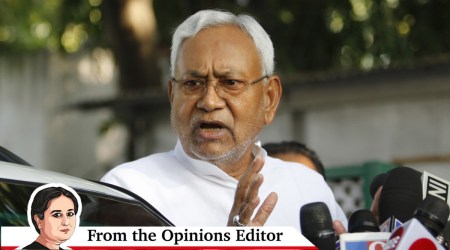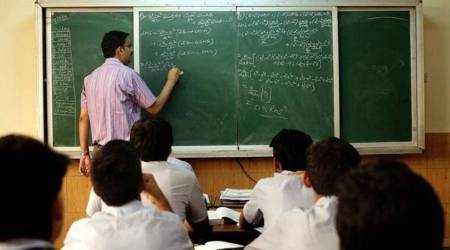[ad_1]
Scholars from India and Greece will collaborate in an in depth examination of the historical past of Alexander of Macedon in India, particularly in Malana village of Himachal Pradesh, whose residents declare to be direct descendants of troopers within the ruler’s military.
This was among the many host of points mentioned on the first worldwide convention on ‘Greek World and India’, held in Jawaharlal Nehru University (JNU) final week.
After defeating the Achaemenids of Persia, Alexander entered the northwestern frontiers of the Indian subcontinent in 327 BC. By the next yr, he had superior into the Punjab, the place he defeated Porus within the Battle of the Hydaspes.
However, confronted with a mutiny from his homesick and war-weary generals who had been additionally seemingly petrified of the formidable Nanda military lined up on their means forward, Alexander was pressured to show again. But a number of teams of troopers and generals stayed again — and legend has it that a few of them settled within the remoted Himalayan village.
“These people believe in their continuity as descendants of soldiers in Alexander’s army, but genetic ties have not been studied or established so far,” Dr Anil Kumar Singh, assistant professor of Greek Studies in JNU and a type of steering the convention, mentioned.
“Besides Malana in Himachal Pradesh, there are places near the Beas river in Punjab and in Jaisalmer in Rajasthan, where Alexander is supposed to have camped. But we need to establish the facts about these places,” Dr Singh mentioned.
Around 40 main students from the 2 nations participated within the occasion, co-organised by the Greek Chair at JNU, the Hellenic Institute of Byzantine and Post Byzantine Studies, Venice, and the Aristotle University of Thessaloniki, underneath the auspices of the Embassy of Greece in India.
The convention, which was proposed by Greek Foreign Minister Nikos Dendias throughout his go to to India earlier this yr, aimed to highlight the most recent analysis on the interplay, communication, and change of influences between the Greek world and India from the Hellenistic period to trendy occasions. A proposal to review the two,000-year-old historic, cultural, and commerce ties between the civilisations could be drawn up, Dr Singh mentioned.
The JNU occasion underlined the regular strengthening of relations between Greece and India, which additionally prolong to the tutorial and cultural discipline, officers mentioned. Several scholarships had been introduced on the finish of the convention — the Aristotle University of Thessaloniki will provide three scholarships for JNU college students, whereas the Hellenic Institute for Byzantine and Post-Byzantine Studies will provide scholarships in Greek Paleography and Codicology subsequent yr. More scholarships shall be introduced because the training cooperation between the 2 nations expands, the officers mentioned.
Minister of State for External Affairs and Culture, Meenakshi Lekhi proposed that India and Greece ought to work intently throughout the UNESCO framework to inscribe their frequent tangible and intangible heritage, together with the Indo-Greek Mathura Art, Unani drugs, and music.
“Greece and India had some fantastic exchanges in old times, they were competing but understanding each other as well,” Lekhi mentioned on the inauguration of the convention.
A spotlight of the occasion was the digital exposition of a novel Byzantine manuscript, with miniatures depicting Alexander’s life, a part of the gathering of the Hellenic Institute. Its “digital journey to India bears testimony to the efforts undertaken by our countries to honour and further explore their cultural bonds,” Dendias, who addressed the convention just about, mentioned.
He additionally quoted Rabindranath Tagore throughout his go to to Athens in 1926: “We, the younger generations of both Greeks and Indians, must always strive to live up to the level of our glorious past.”
Indian students will take part in a follow-up convention in September 2023 on the Hellenic Institute.
[adinserter block=”4″]
[ad_2]
Source link



